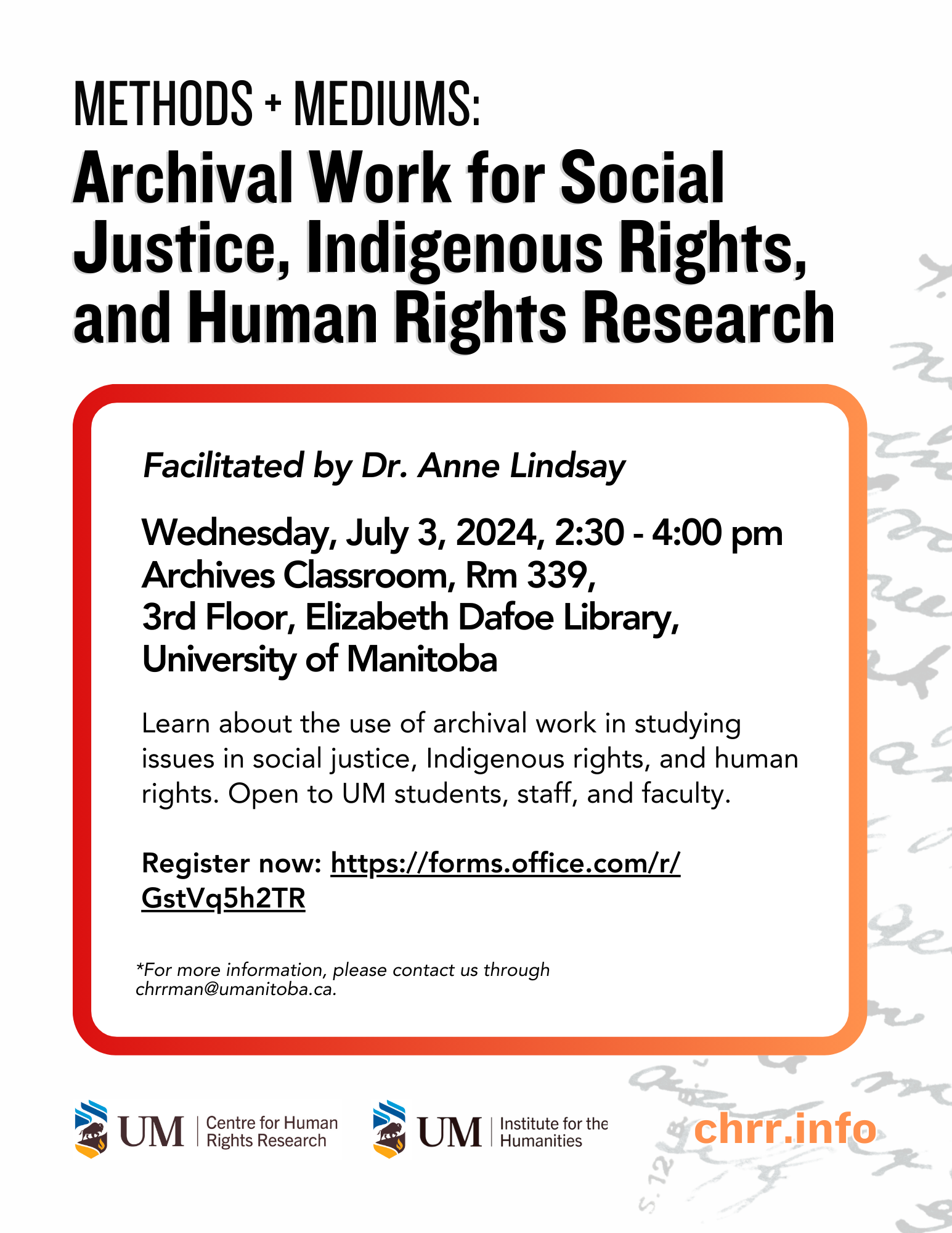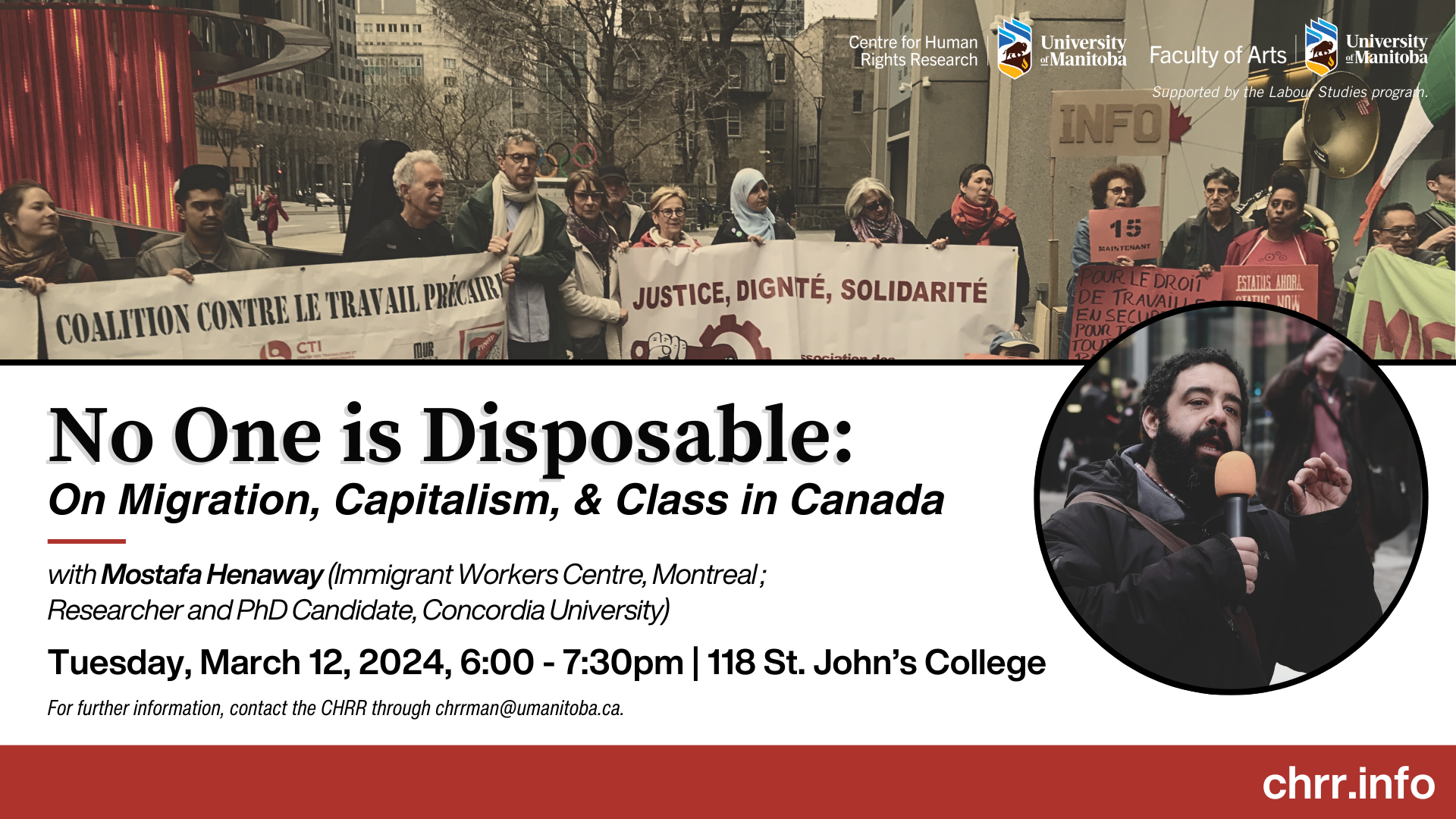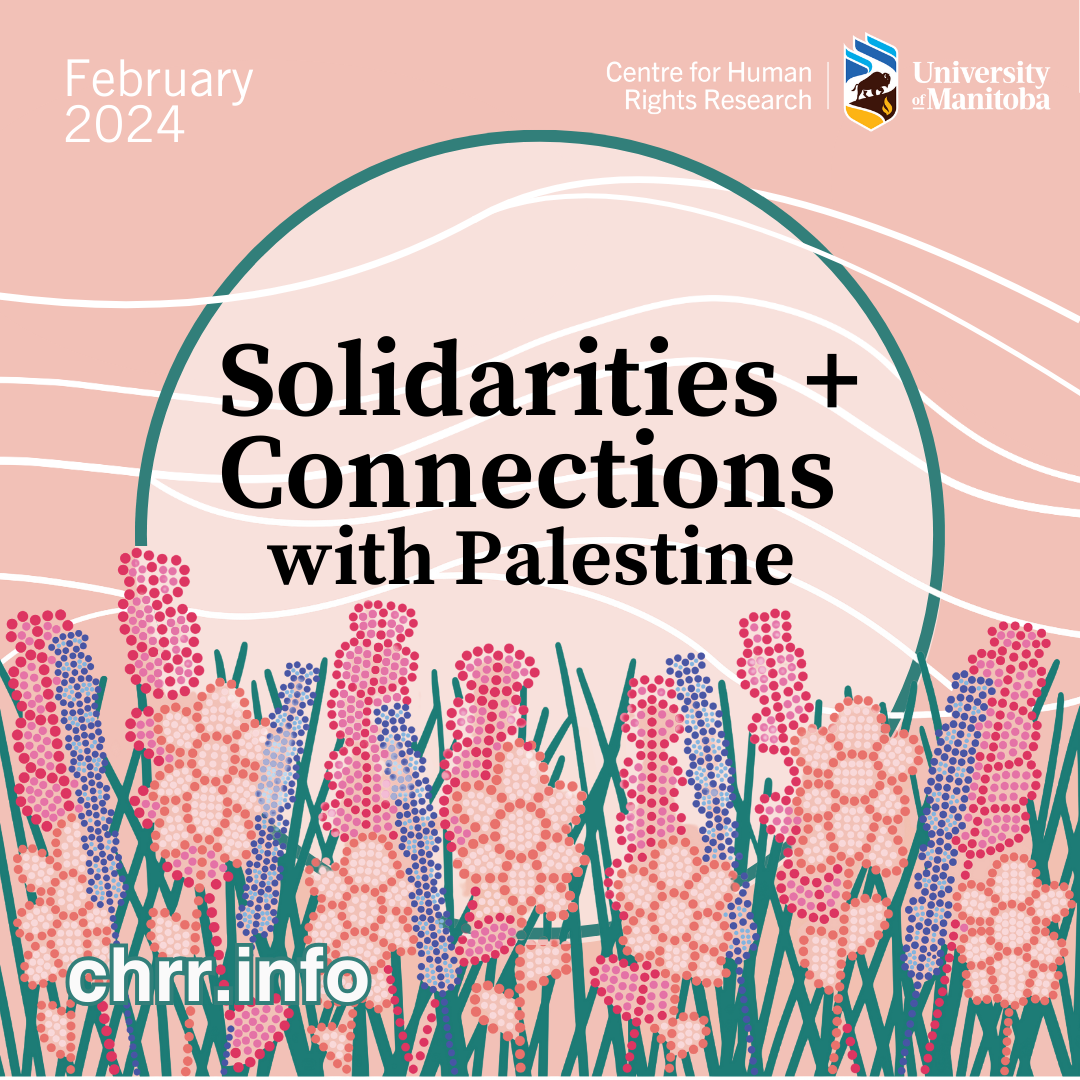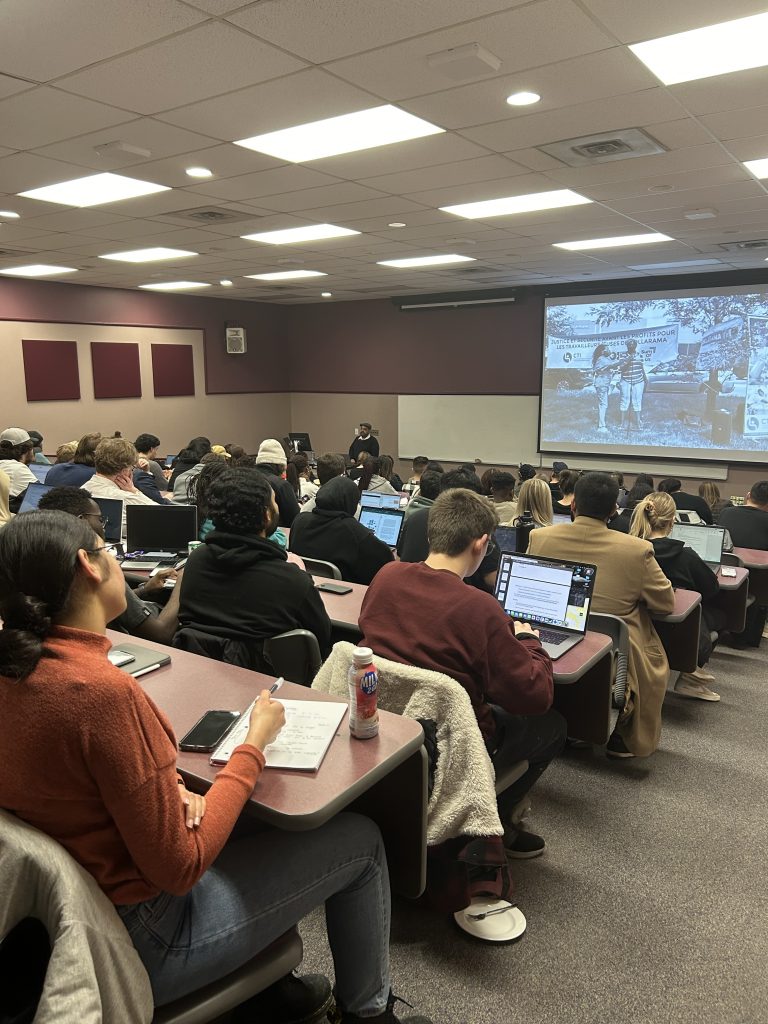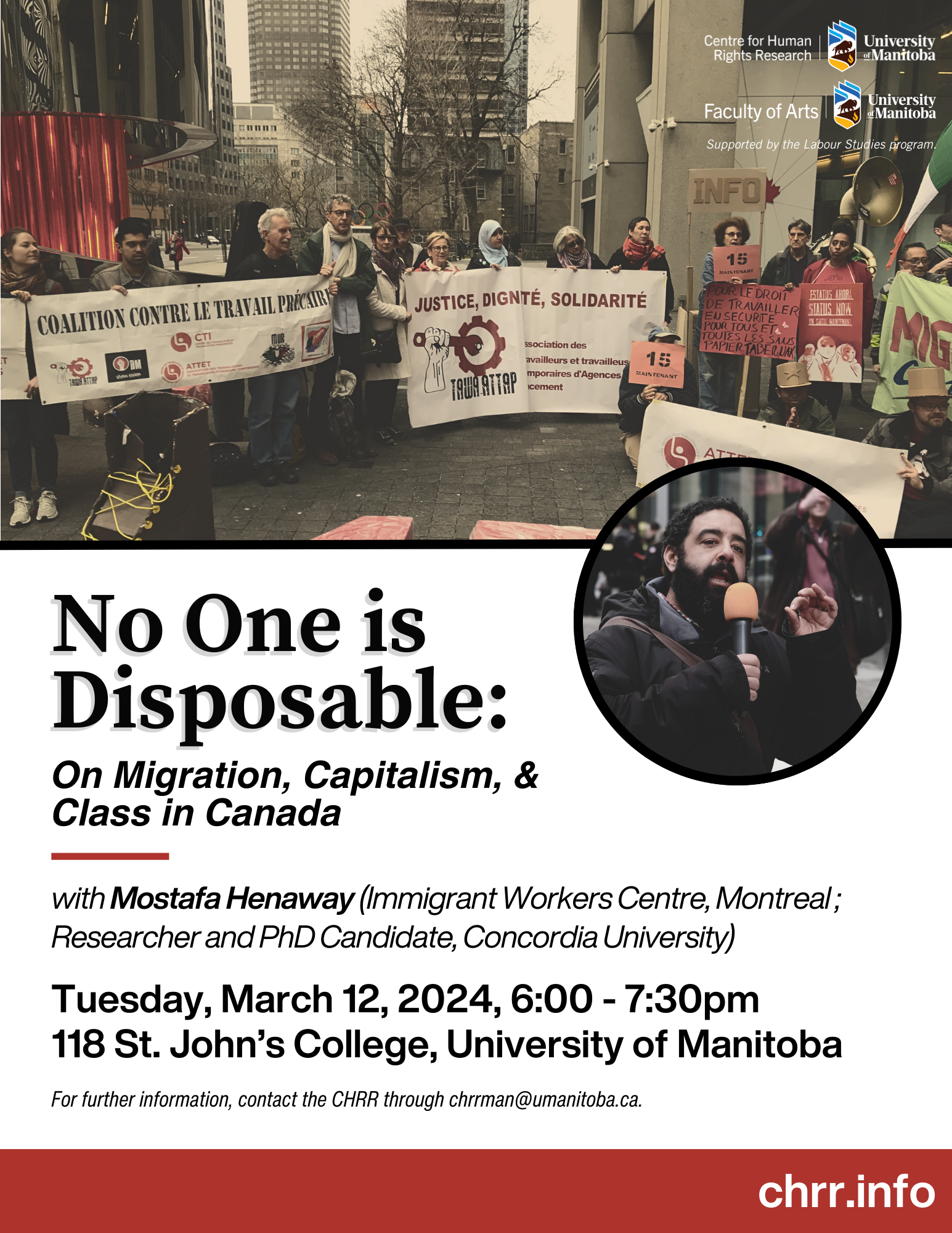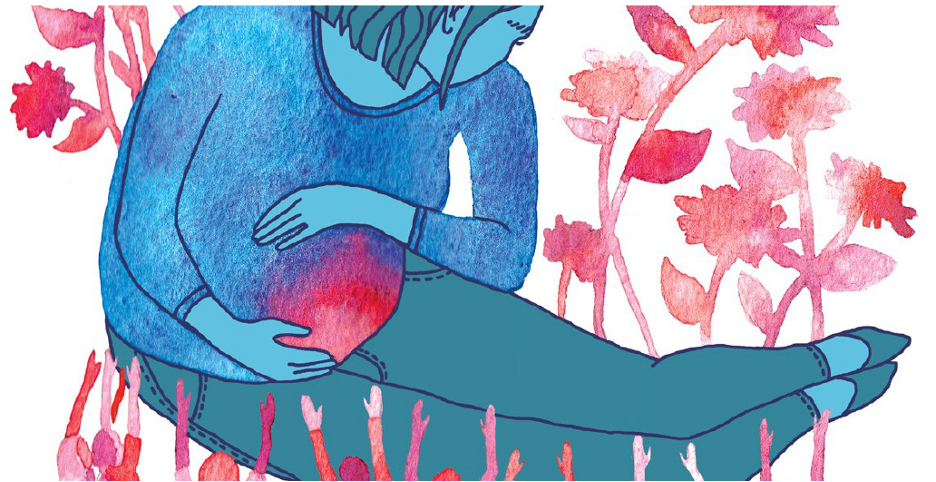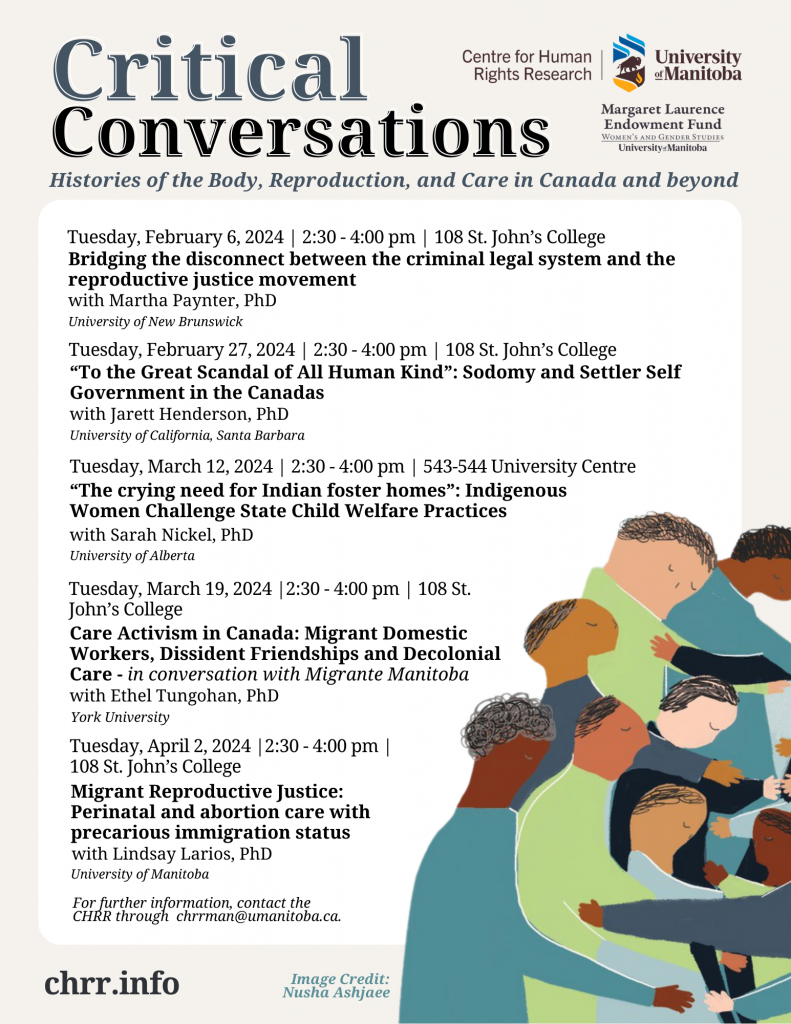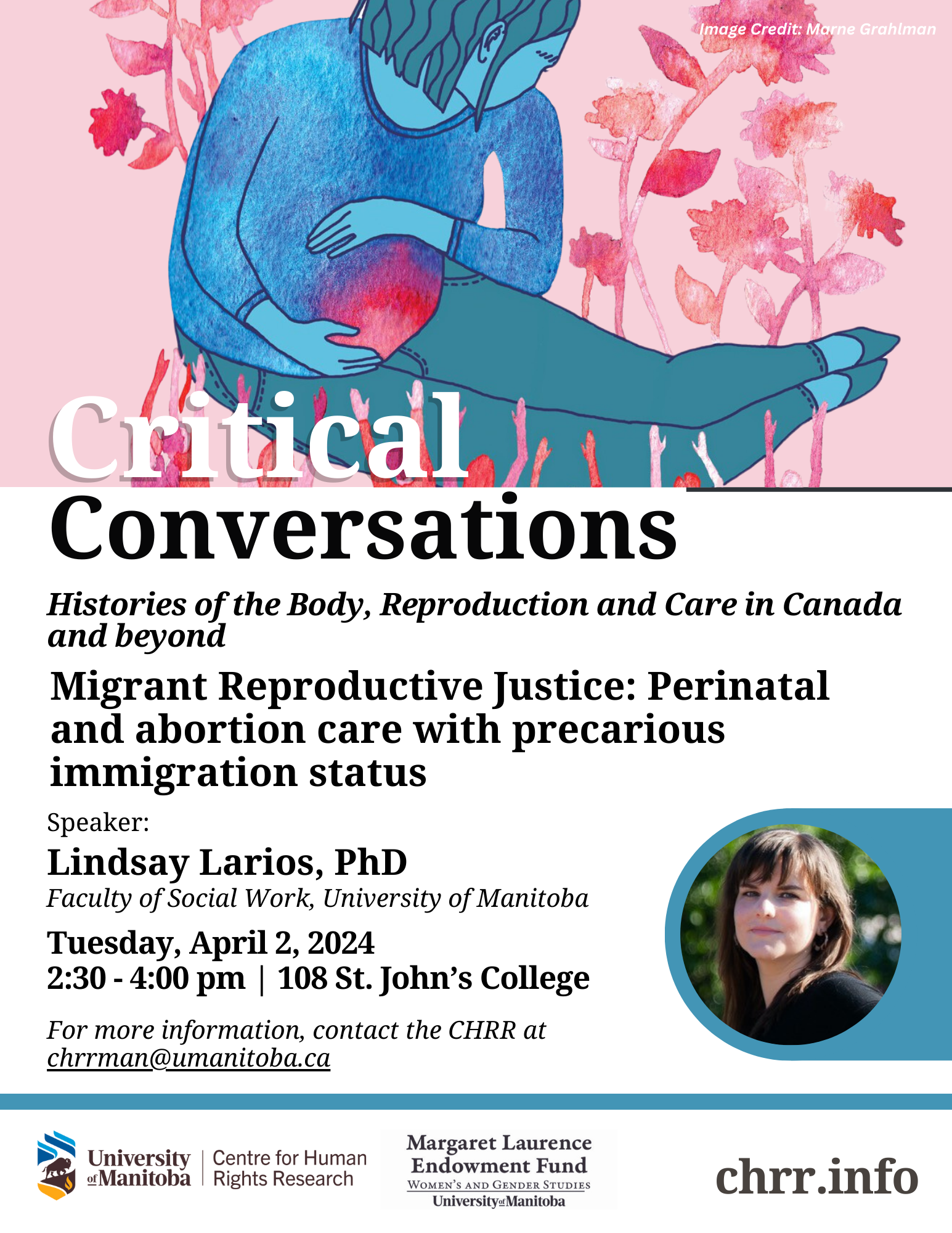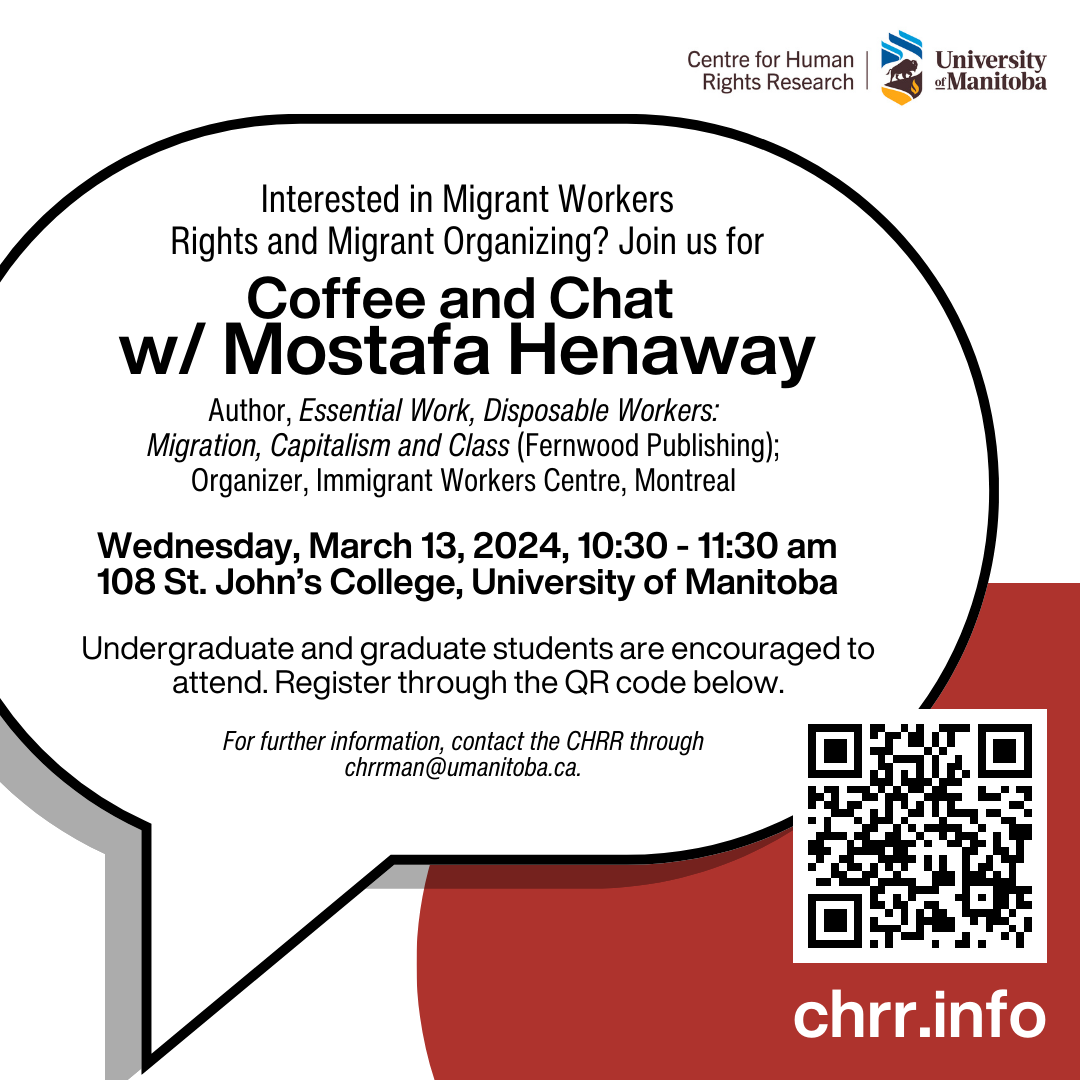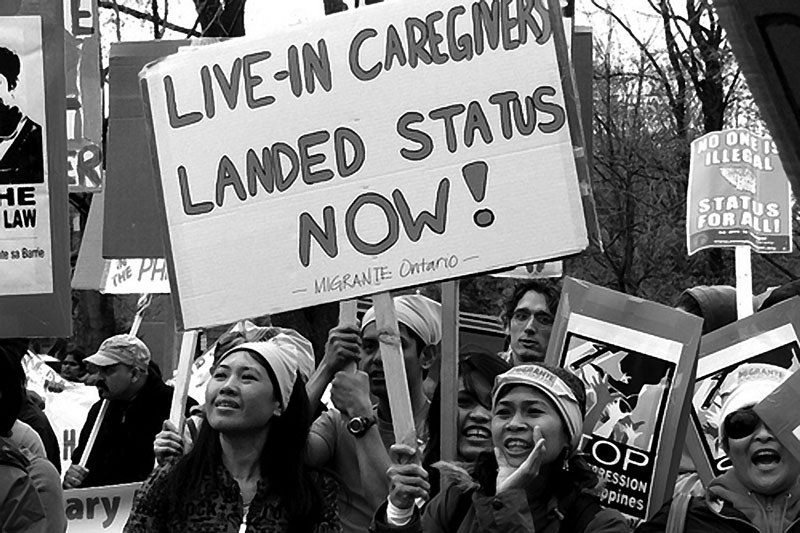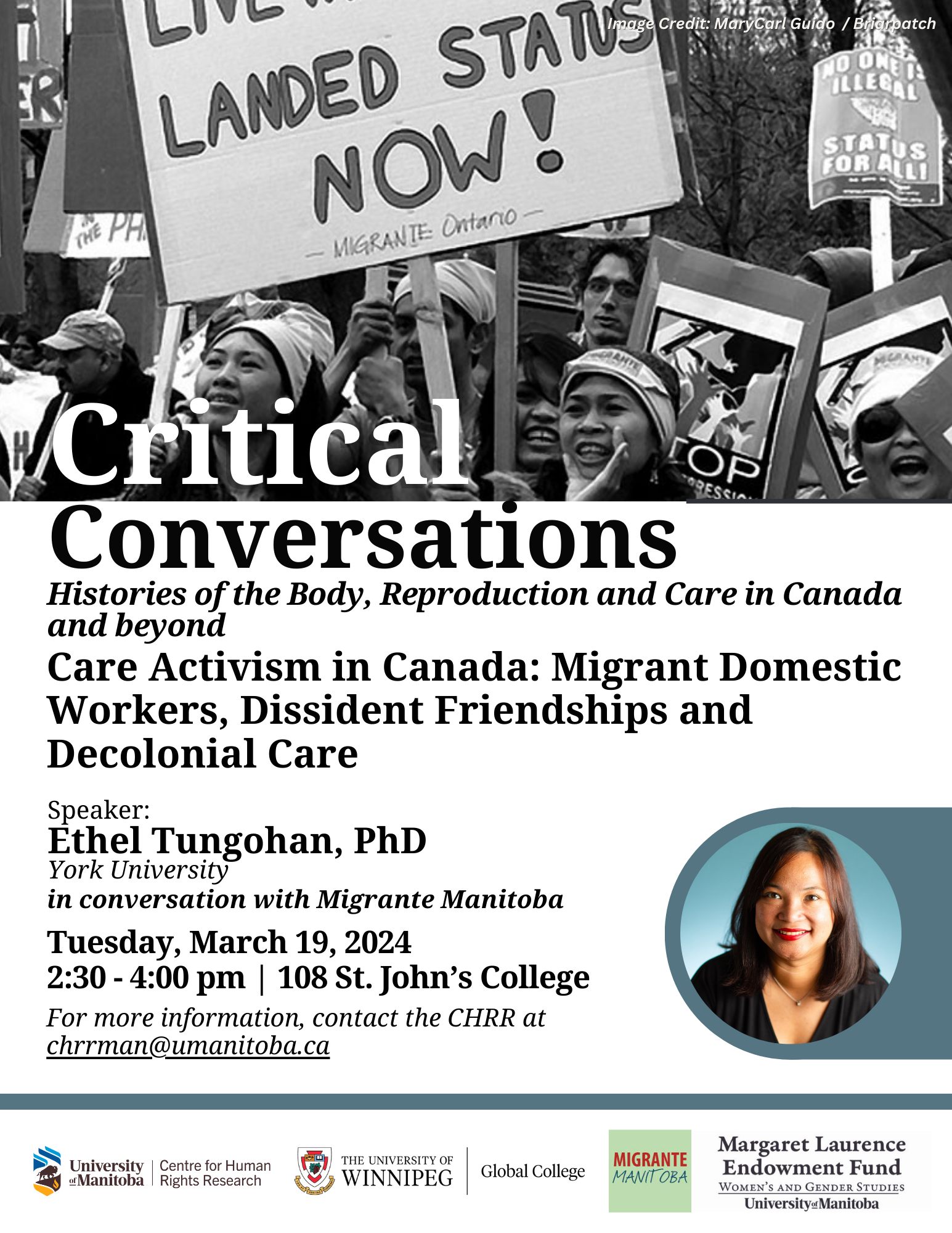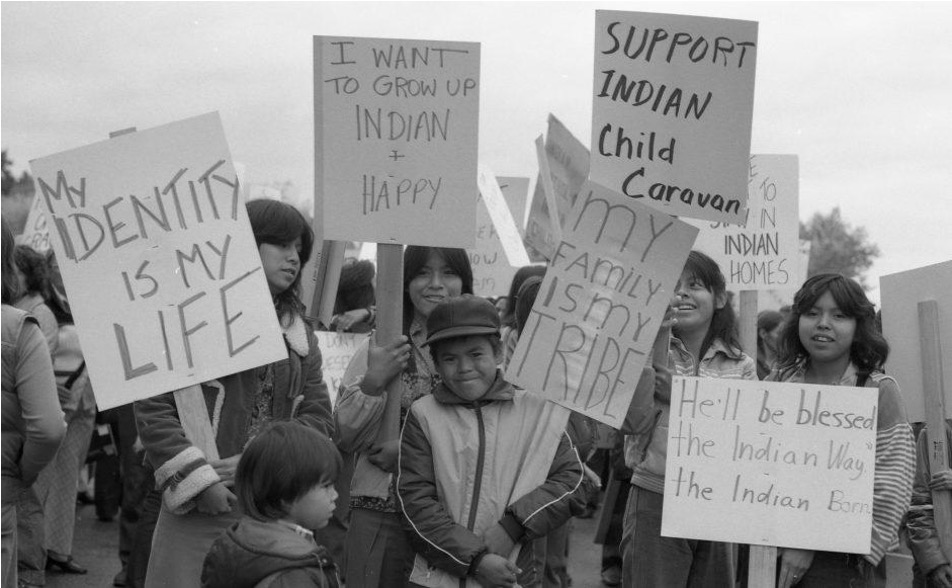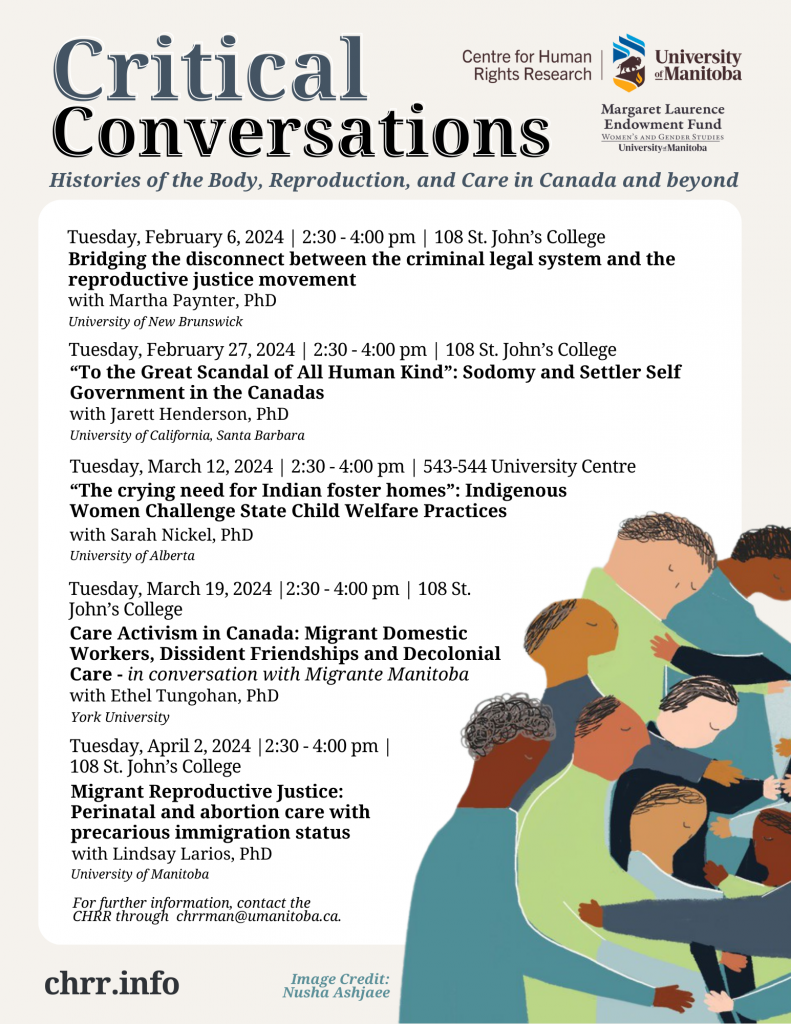On Wednesday, July 3, 2024, the Centre for Human Rights Research and the Institute for the Humanities at the University of Manitoba hosted Dr. Anne Lindsay for a seminar on “Archival Work for Social Justice Research, Indigenous Rights, and Human Rights Research.” This seminar is part of the CHRR’s Methods + Mediums in Human Rights Research series.
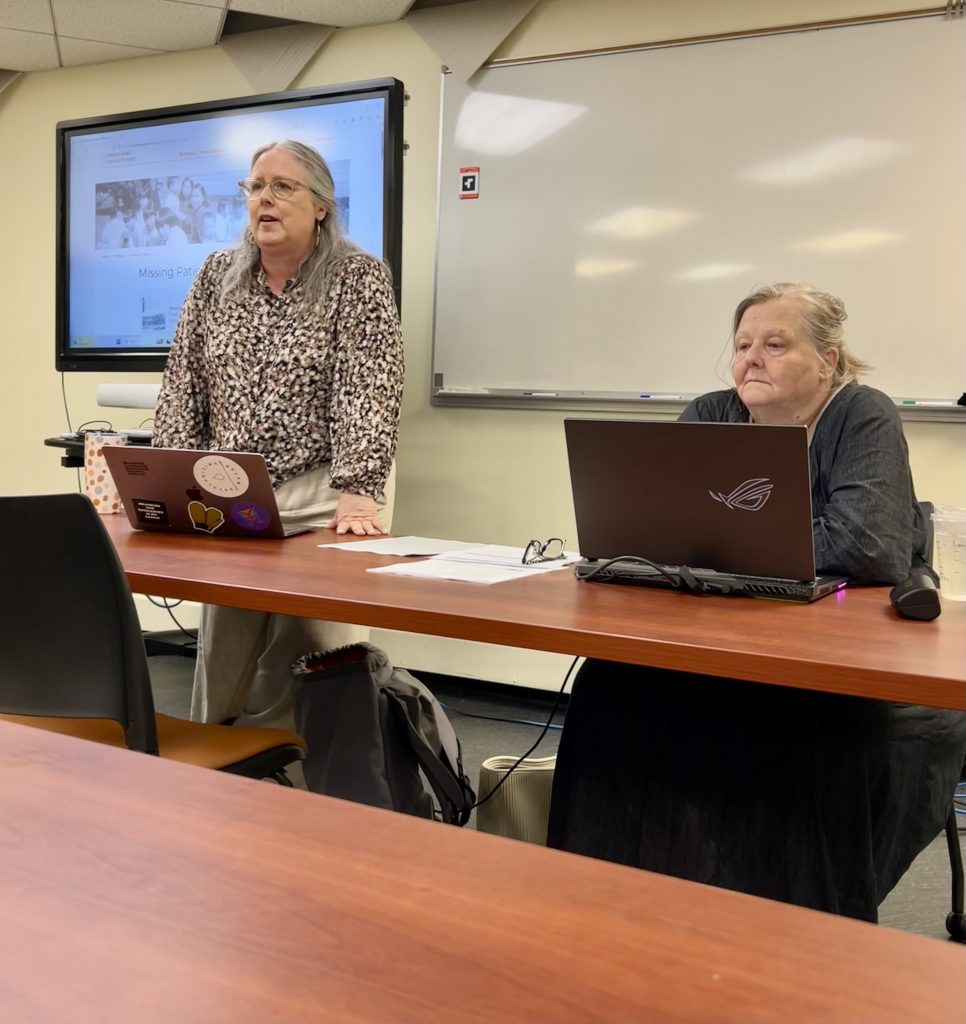
Dr. Anne Lindsay is a settler historian who has worked for the Truth and Reconciliation Commission of Canada, the National Centre for Truth and Reconciliation, and for the Office of the Special Interlocutor for Missing Children and Unmarked Graves and Burial Sites Associated with Indian Residential Schools. Trained in both archival studies and history, she has been doing research in the areas of missing Indigenous children and Indian Residential School cemeteries in Manitoba and North-western Ontario for over ten years, and has been working with Indigenous individuals, families, and communities to locate records for over twenty. Her work with the Manitoba Indigenous Tuberculosis History Project has contributed to the creation of a research guide and related video modules designed to support families and communities searching for loved ones who were sent to Indigenous Hospitals and Sanatoria in Manitoba – including Indian Residential School students – in the period from the 1930s to the 1970s.
Dr. Lindsay shared the complex process she undertook, working alongside William Osborne, to locate the burial sites of his three aunties — Betsey, Isobel, and Nora Osborne — three sisters who were forced to leave their family and their Cross Lake Community and who never returned home. You can learn more about William and Anne’s work in their publication with At the Forks. The search to locate their burial sites anchors a broader conversation regarding the Indian Residential School System in Canada & how this living past continues to impact communities and families today.
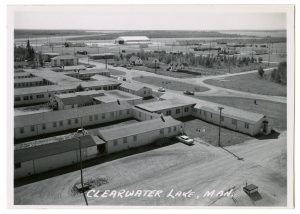
Dr. Lindsay also shared her work with the Manitoba Indigenous Tuberculosis History Project and her dreams for a fully autonomous, Indigenous-led archives in Canada.
